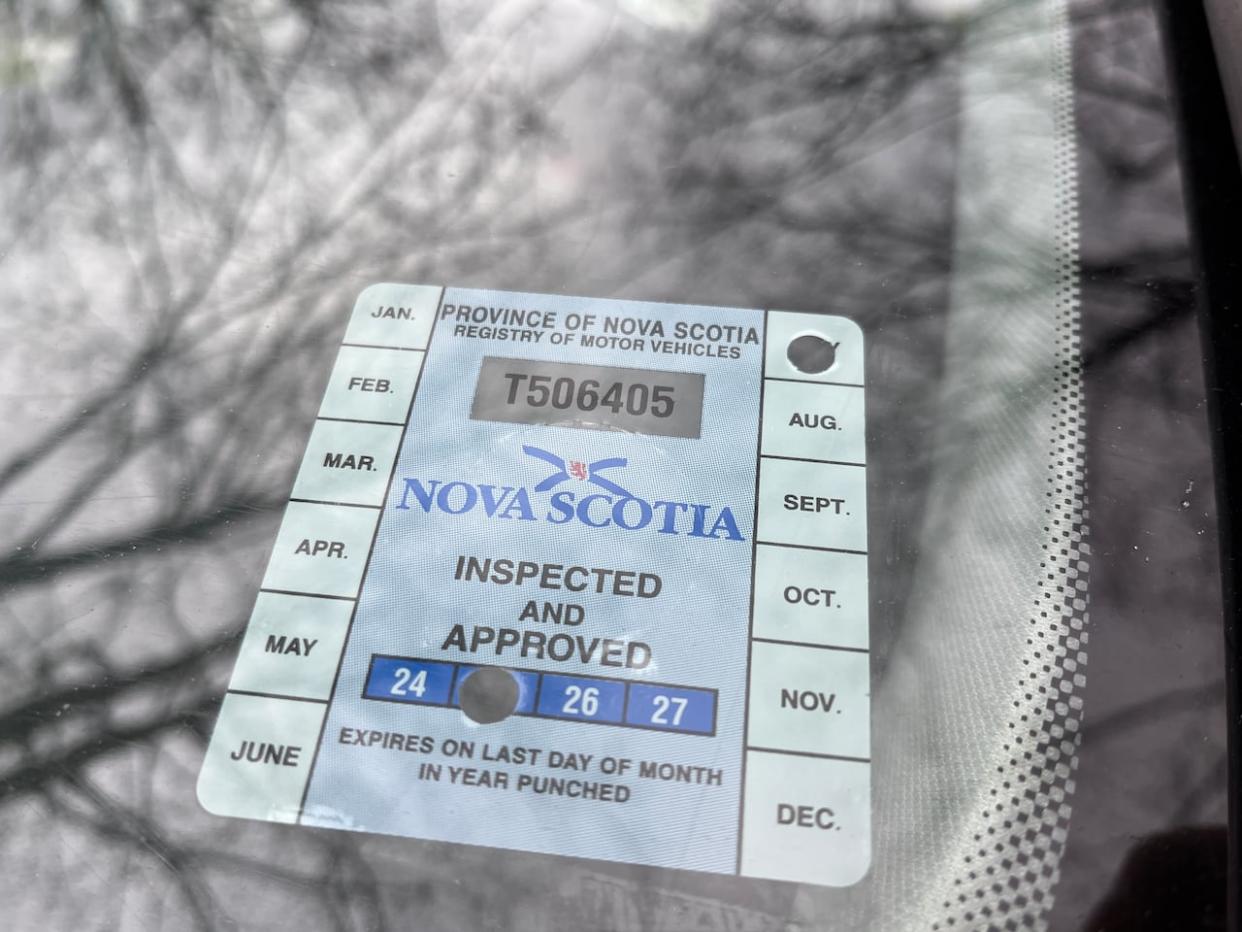Nova Scotia government reviewing motor vehicle inspection requirement

The Nova Scotia government is reviewing the requirement for motor vehicle inspections, CBC News has learned.
A spokesperson for the Public Works Department said in a statement that the government started looking at MVI fees at the start of the year.
"Government periodically receives feedback asking for the removal of MVIs and we are always assessing our programs," Blaise Theriault said in an email.
"No decisions have been made."
In Nova Scotia, MVIs are required to be renewed every two years, although a new vehicle purchased in the province from a licensed dealer comes with a sticker that's good for three years.
MVIs are handled differently across the country. Some provinces require a renewal every two years. Other provinces, such as Alberta and Quebec, do not require inspections unless a vehicle is brought in from another province.
The fee for an inspection in Nova Scotia ranges from a low of about $16 for motorcycles and trailers that do not have brakes, to a high of $98 for trucks, buses or motorhomes that weigh more than 4,500 kilograms. The cost for vehicles with a single rear axle designed for two wheels, including passenger cars and trucks, is $29.15.
NDP leader calls move 'better late than never'
In February, NDP Leader Claudia Chender called on the government to extend the renewal period for MVIs to five years.
In an interview Monday, Chender called news of the review "better late than never."
The NDP's proposal was part of a broader call that also included the end of fees for vehicle registration, licence renewal and several other charges as measures to save people money.
"We are experiencing an affordability crisis," said Chender. "People are having a harder and harder time paying the bills."
Chender said the NDP proposal to increase the MVI renewal period followed an evaluation of what's done in other provinces. She said she would have no problem with doing away with them altogether. Chender said the fees only serve to increase government revenues and she thinks this is a case where people need a break.
Liberals raise safety concerns
Information provided by the Public Works Department shows that the sale of sticker booklets to MVI stations produced about $1.6 million in 2023 and almost $1.7 million in 2022. The fee for licensing MVI stations generated almost $122,000 in 2023, about $124,000 in 2022 and almost $112,000 in 2021.
Licencing fees for motor vehicle testers generated about $27,600 in 2021, $29,000 in 2022 and $30,000 in 2023.
Liberal Leader Zach Churchill said he's concerned that the savings people would get from not having to renew their MVI sticker are not great enough to offset potential safety concerns.
Before the government makes any changes, he said he would want to see data showing any impacts to safety.
"This isn't going to save people a lot of money," he said.
"I think the cost for these things are fairly low and the benefits could actually be pretty good because it ensures we have safer vehicles on the road and reduce risk to drivers."
Churchill said he would also want to know about any potential impacts for service stations that do MVIs.
'You wouldn't believe the amount of unsafe vehicles,' says mechanic
Darrell Bethune, who has operated Sure Fire Automotive in Porters Lake, N.S., for the past 14 years, said he favours keeping the requirement for motor vehicle inspections.
"From what I've seen over the years of this shop and other ones that I've worked in, without MVIs you wouldn't believe the amount of unsafe vehicles that would be on the road," he said.
Bethune said that at least once every two weeks he sees a vehicle that should not be on the road. He estimated that between 30 and 40 per cent of the people who come to him to renew their MVI require work they would not otherwise have known about.
Although the process does lead to work for automotive shops, Bethune said he also knows of examples where people have been told they needed certain work done to renew their inspection that was not actually required.
He said a compromise could be for the government to have inspection stations that would generate a report for the driver to take to a mechanic. Once the necessary work is complete, they could return to the inspection station to get their sticker.
MORE TOP STORIES

